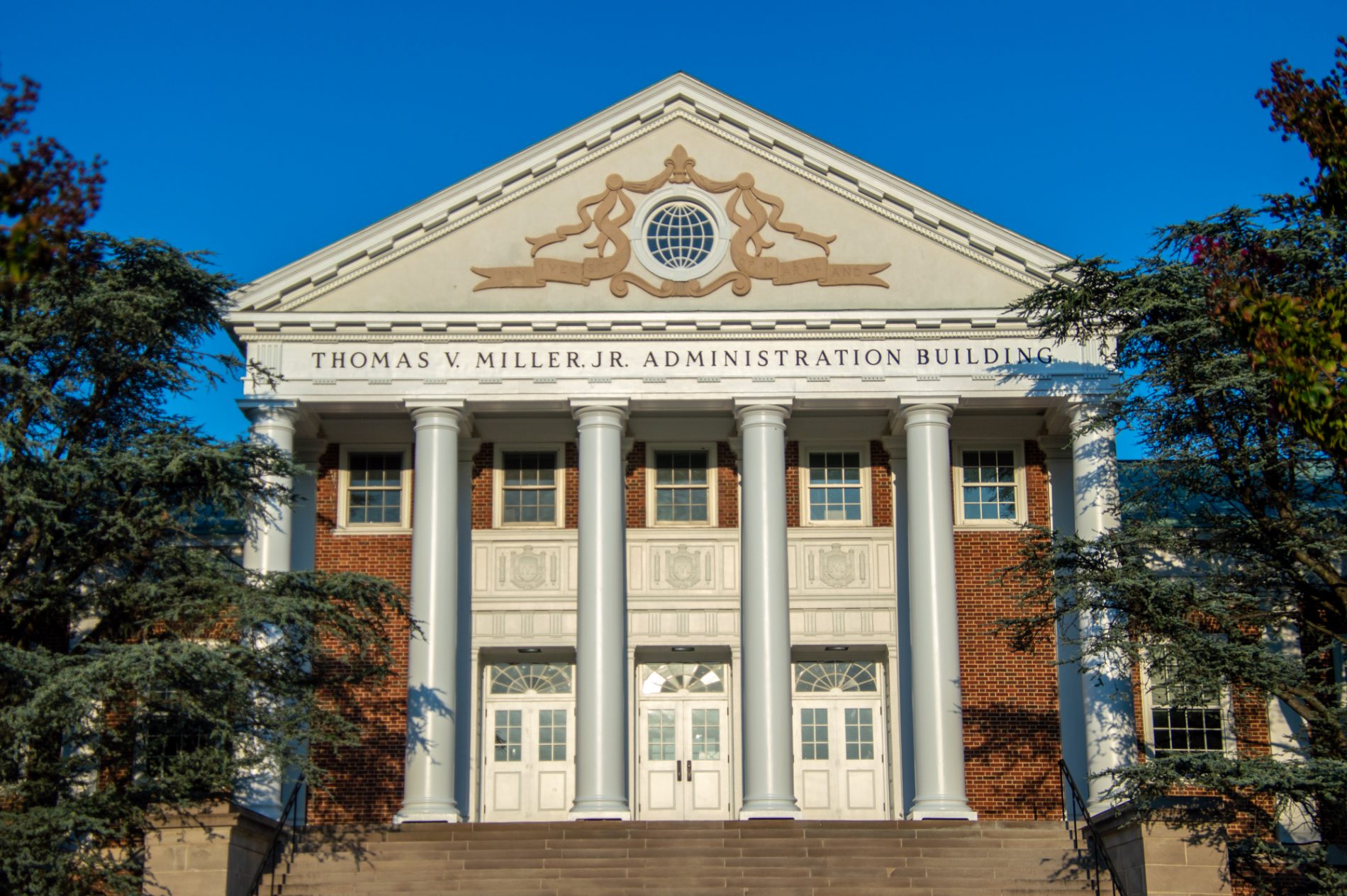Throughout the fall semester, student leaders at the University of Maryland sounded the alarm again and again: As coronavirus cases and deaths ballooned across the country, many of their classmates were facing insurmountable challenges.
Now, results from a survey of undergraduates conducted mid-semester provides further evidence of the academic and personal hardships many students faced during the semester.
From Oct. 29 through Nov. 6, nearly 4,600 undergraduates — or 15 percent of the student body — completed the survey, though not all responded to every question. The survey, which was developed by the student affairs division and other departments, included questions about students’ academic experiences, feelings of connection to the campus and overall well-being.
The university also conducted surveys of graduate students and faculty.
According to the results of the undergraduate survey, 75 percent of respondents said coursework was more challenging than the spring semester and 64 percent claimed their experience in courses was at least somewhat negative. Students also believed the semester was worse than fall 2019, with 70 percent of respondents reporting they’d learned less in their classes.
Additionally, 67 percent of undergraduates said they felt isolated from the university community — a five percentage point decrease from a spring semester survey. In the survey of graduate students, 60 percent said they feel isolated from the community.
Of the undergraduate respondents, 27 percent said the pandemic had some negative impact on their access to housing and 34 percent claimed their access to medical care was also negatively impacted. Ninety-two percent of undergraduates said the pandemic had a negative impact on their mental health.
[Mental health advocacy groups at UMD are ramping up their efforts to help students]
Graduate students generally had more positive experiences this semester than undergraduates, according to the results, but they also found the semester to be worse than fall 2019. Faculty also had generally positive experiences, but many struggled with managing child care.
Considering what they’d heard from their classmates all semester, student leaders found the survey results unsurprising.
“Students have not been lying this entire semester,” said Emily Berry, president of the Residence Hall Association. “They’ve been telling the university exactly what they need.”
For months, Berry and other student leaders have implored administrators to do more to accommodate students, pushing the school to implement a pass/fail grading option as it did after the pandemic shifted classes online during the spring semester.
But the university ultimately opted against using the system, citing potential academic and professional setbacks for those who took classes pass/fail. This decision triggered an outcry from students, with the Student Government Association and RHA passing resolutions urging the university to reconsider and other students organizing a survey to gauge the toll the pandemic has taken on their classmates.
The university compiled the results of all three surveys Nov. 20 — four days after the pass/fail decision and amid campuswide backlash. But the university did not release the results until Dec. 16.
The release of the results followed the university’s “standard process,” according to a university statement. The release occurred after a “thorough review to ensure that the results were correct and reflected the opinions of our stakeholders,” the statement read.
Alysa Conway, the SGA’s academic affairs director, was among the students leading the campaign for a pass/fail option. The survey results left her “dumbfounded” and “extremely frustrated,” she said.
“I’m just not understanding the decision making as regards to why they pursued what they did when the survey results were right there,” the senior government and politics and public policy major said.
Meanwhile, Carlo Colella, the university’s administration and finance vice president, had a different interpretation of how students fared this semester.
In a meeting Dec. 17 with state delegates about student leases in South Campus Commons and The Courtyards, Colella emphasized how the university was “fortunate for how well our students have done.”
[More LGBTQ+ students are reporting psychological distress amid COVID, UMD study shows]
“Our survey of our students for their experience in the fall, we’ve had countless amounts of feedback saying how, while it was different, they really enjoyed their experience,” Colella said at the meeting.
Jackson Devadas, another student who advocated for pass/fail, said Colella’s statement shows “the administration is so far removed from the reality of the situation.”
“This semester was perhaps the worst semester I’ve ever had here,” the senior neurobiology and physiology major said. “They have the gall, the gall to say it wasn’t that bad. It’s just, it’s ridiculous.”
In an emailed statement, university spokesperson Katie Lawson wrote that the university recognizes the unprecedented hardships students faced this semester.
“Understanding the experiences of our students is important to how we move forward, and feedback collected now and in the future will be factored into our decision making,” the statement read.
Provost Mary Ann Rankin wrote in an email last year that past surveys have informed university decisions. For example, the university implemented laptop and wireless hotspot loan programs after assessing the results from its Technological Readiness Survey in March.
The university would not make Rankin available for an interview in December.
Moving forward, Berry is pessimistic that students will be able to influence academic policies, she said.
“It’s hard to convince a student that it’s worth it, and to say ‘yeah, make your voice heard, your voice matters’ because I don’t think that the university proved that here at all,” she said. “I’m not sure that there’s much room for working with the provost, though I would love for that to change.”



